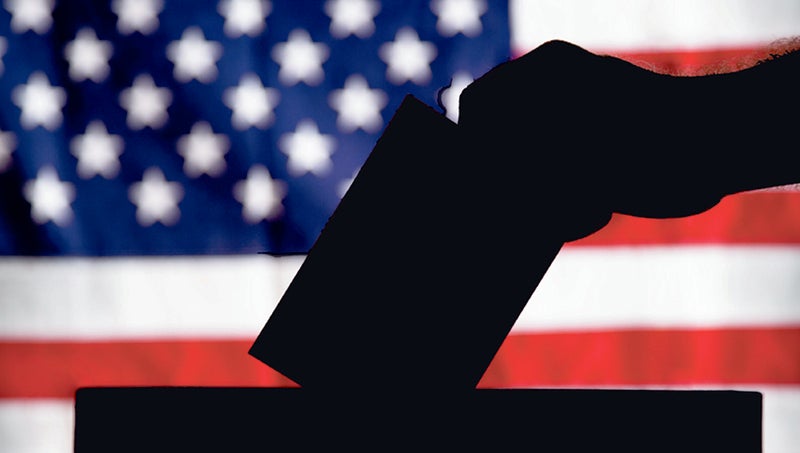TOP 10 OF 2018: ICE, DOJ investigation seeks thousands of Beaufort County voters’ records
Published 5:14 pm Monday, December 31, 2018
The subpoena of five years of Beaufort County’s voters’ records by the U.S. Department of Justice is one of the Daily News’ top 10 stories of the year.
The subpoena is part of an Immigration and Customs Enforcement investigation into voter fraud in eastern North Carolina — an investigation that was expanded after 19 foreign nationals were found to have falsified claims of U.S. citizenship in order to vote during the 2016 election. Beaufort County is one of 45 counties that received the subpoena via fax on Friday afternoon of Labor Day weekend, and Beaufort County Board of Elections staff did not see it until Tuesday after the holiday.
The requested documents include: “Any and all poll books, e-poll books, voting records, and/or voter authorization documents and executed officials ballots (including absentee official ballots), that were submitted to, filed by, received by, and/or maintained by the Beaufort County Board of Elections from August 30, 2013 through August 30, 2018,” the ICE fax read.
Also included in the request are: Standard Voter Registration Application forms; Federal Post Card Applications (FPCA); Federal Write-In-Absentee Ballots (FWAB); One-Stop (Early Voting) application forms; Provisional Voting forms; N.C. Absentee Ballot Request forms; any and all “Admission or Denial of Non-Citizen Return Form” that were generated by the North Carolina State Board of Elections, or were caused to be generated by the North Carolina Board of Elections, and/or the Ethics Enforcement Office; any and all Voter Registration Cancellation or Voter Revocation forms that have been generated by the North Carolina State Board of Elections, and/or the Ethics Enforcement Office.
The subpoena immediately set off alarms, as Boards of Elections across eastern North Carolina were given a deadline of 8 a.m., Sept. 25, to deliver all the documents to the U.S. District County in Wilmington —an impossible task for BOE staff preparing for the 2018 midterm elections.
“I have a staff of two, including myself,” said BOE director Kellie Harris Hopkins, at the time. “This is will be hundreds of thousands of pieces of paper that will need to be scanned.”
By the following Friday, the North Carolina Board of Elections and Ethics had stepped in, voting unanimously to engage the North Carolina Attorney General’s Office to represent the board and every Board of Election subpoenaed, stating the subpoena was “overly broad, unreasonable, vague, and clearly impacts significant interests of our voters” and that it violated “the principles of overreach by the federal government.”
Since, the U.S. Attorney General’s Office backed off the initial deadline, extending it to the first of the year, and county Boards of Elections have begun compiling the information even as the state gathers information on the burden of scanning all, and redacting some, of the documents requested. County Boards of Elections were asked via an Oct. 29 email to gather information for the state Attorney General’s Office, including: how many total responsive documents would have to copied or scanned; the limitations of each board that could prevent compliance, such as number of employees or budget constraints; an estimate of how much it would cost to comply with the federal subpoena; and any other areas that would “speak to the level of the burden of the request.”
“We are going to explain to the powers that be what it’s going to cost to comply and see if something can be done,” Beaufort County attorney David Francisco told the Board of Commissioners in November. “In addition, we have asked the state to assist in the expense to the 44 counties that have been asked to comply with this. … We’re doing the best we can to comply, and we’ll go from there.”
Six to one, commissioners sided with the Board of Elections and Ethics’ use of the state Attorney General’s Office to question the federal government’s demand during that same meeting. However, Commissioner Hood Richardson requested Beaufort County remove itself from NCDOJ representation, comply with the subpoena, request the USDOJ make the subpoena a bit more practical in its scope and foot the bill for the additional hours and employees needed to complete the task.
After the November mid-term election, when the makeup of the Beaufort County Board of Commissioners changed, the board voted 4-3 to do just that, passing a resolution stating the county “supports the efforts by the Wilmington Federal District Attorney, the U.S. Immigration and Customs Enforcement Agency, and the U.S. Department of Homeland Security to stop illegal voting.”






